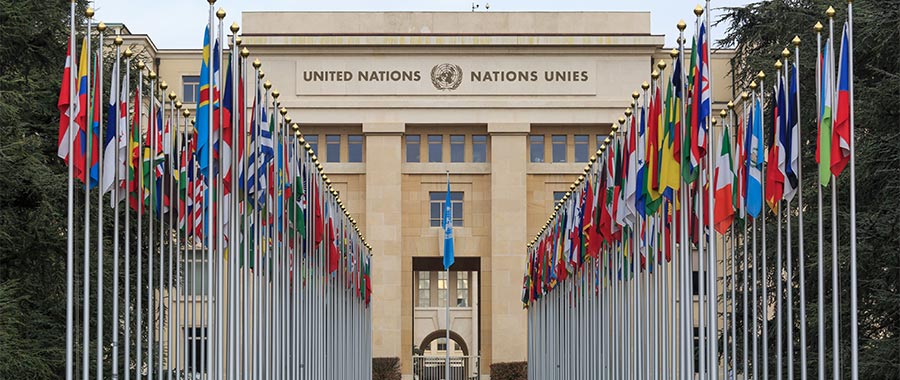In recent decades, the global community has witnessed an awakening to the urgency of sustainable development. The United Nations Sustainable Development Goals (SDGs), adopted in 2015, represent a framework aimed at addressing the multifaceted challenges of poverty, inequality, and environmental degradation. However, there exists a palpable dissonance between the lofty ideals enshrined in these goals and the pragmatic realities encountered in their implementation. At the heart of this quandary lies a fundamental question: How can we reclaim the spirit of sustainable development that resonates with the aspirations of humanity? Bahá’í teachings offer profound insights that can illuminate this path.
The Bahá’í Faith, rooted in the belief of the oneness of humanity, posits that true progress can only be realized through the promotion of unity and collective action. This belief is not merely an abstract ideal; it reflects an understanding that the challenges we face today are inherently interconnected. For instance, issues such as climate change do not respect national boundaries. They demand a concerted global effort. The Bahá’í perspective compels us to transcend parochial interests and work collaboratively towards common objectives. Such collective action is essential to uphold the integrity of the SDGs.
Moreover, the Bahá’í teachings emphasize the importance of spiritual principles in guiding human endeavor. The concept of “reclaiming spirit” conveys more than mere nostalgia for the original vision of sustainable development. It signifies a need to infuse our efforts with values such as justice, compassion, and mutual understanding. The teachings urge that the success of the SDGs is not solely reliant on economic or technical solutions. Rather, it is imperative that we foster a moral framework that aligns with the innate dignity of all individuals. Thus, a genuine commitment to sustainability must be rooted in ethical imperatives that elevate the human experience.
One poignant observation regarding the current implementation of the SDGs is the tendency toward fragmentation. Various stakeholders, from governments to NGOs, often pursue their agendas in silos, leading to inefficient resource allocation and missed opportunities for synergistic collaboration. The Bahá’í principle of the interrelatedness of all aspects of life suggests that a holistic approach is necessary for meaningful progress. By fostering partnerships across different sectors and disciplines, the global community can harness the collective expertise and diversity of thought required to address complex challenges. This approach aligns with the Bahá’í vision of a unified world, where individuals recognize their responsibilities to one another and to the planet.
Furthermore, an overarching theme within Bahá’í teachings is the empowerment of individuals and communities. Enabling individuals to take action and participate meaningfully in sustainable development efforts can unleash untapped potential. It is vital to inspire local ownership of initiatives that echo the SDGs. Local communities possess unique insights, cultural knowledge, and resilience that can drive innovative solutions to sustainability challenges. By prioritizing grassroots involvement, we can ensure that initiatives are not only effective but also culturally relevant and sustainable in the long term.
The Bahá’í teachings also underscore the necessity of education as a cornerstone of sustainable development. Education acts as a catalyst for transformation, equipping individuals with the tools to navigate complex challenges. It fosters critical thinking, creativity, and a sense of responsibility toward both local and global communities. Integrating ethical dimensions into educational curricula is essential. This approach nurtures not only knowledge but also character—instilling a profound understanding of one’s role in promoting sustainability. Moreover, by advancing universal access to quality education, we honor the Bahá’í principle of equitable opportunity for all.
Incorporating gender equality into the conversation surrounding sustainable development is another critical element reinforced by Bahá’í teachings. The empowerment of women and girls is fundamental to achieving the SDGs. Gender disparity not only violates fundamental human rights but also stifles economic growth and innovation. The Bahá’í Faith advocates for the equal participation of men and women in all aspects of society, positing that true progress cannot be attained while half the population remains marginalized. By elevating the status of women and fostering inclusive participation, we can unlock the full potential of communities and contribute to a more sustainable future.
As we contemplate the implications of reclaiming the spirit of sustainable development, we must acknowledge the role of governance and policy-making. Transparent, accountable, and inclusive governance structures are vital for implementing the SDGs effectively. Bahá’í teachings emphasize consultation as a method of decision-making that encourages diverse viewpoints and collective wisdom. This diplomatic approach can facilitate consensus-building among stakeholders, ensuring that policies reflect the needs and aspirations of the communities they serve. Engaging in meaningful consultation fosters trust and strengthens the social fabric essential for sustainable development.
In conclusion, the Bahá’í perspective provides a compelling framework for reclaiming the spirit of the United Nations’ Sustainable Development Agenda. By intertwining moral principles with action, prioritizing holistic approaches, fostering empowerment, and promoting inclusivity, we can navigate the complex landscape of sustainable development with greater efficacy. As humanity endeavors to realize a future that embodies sustainability in its truest sense, the infusion of Bahá’í teachings can serve as a guiding light—encouraging us to reimagine our shared commitments and invigorate our collective efforts toward a world imbued with justice, equity, and unity.
